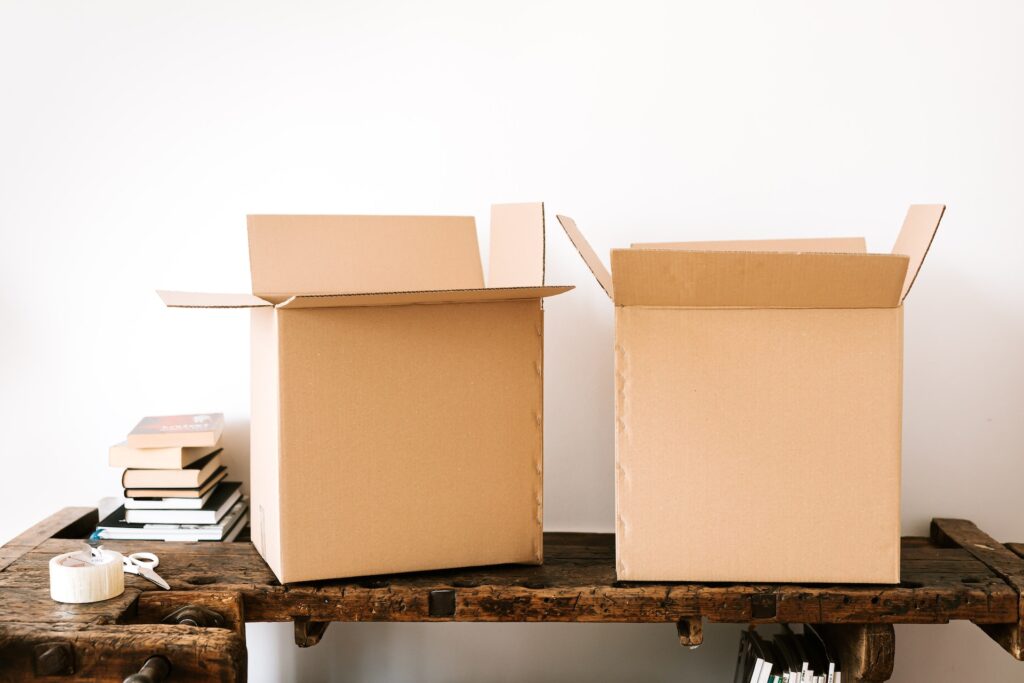When it comes to moving or decluttering, one of the most important things to consider is house clearance. This process involves clearing out and disposing of unwanted items in a responsible and efficient manner. It can be a daunting task, especially if you have accumulated a lot over the years. That’s why having a well-organized checklist can make all the difference.
In this article, we will discuss the essential steps and considerations for a successful house clearance. From hiring professional services to managing your belongings, we’ve got you covered. We will also provide tips and advice on how to make the process less overwhelming and more manageable.
House clearance check list
Here are the key steps to follow for a smooth and stress-free house clearance:
Assess your belongings:
Before you start the actual clearance process, it’s essential to assess your belongings and determine what items you want to keep, donate, sell or dispose of. This step will help you save time and effort by not having to handle unwanted items.
To begin with, make a list of all the rooms in your house and go through each one systematically. Create categories for your belongings based on their condition and value. For example, you can have categories such as ‘keep’, ‘donate’, ‘sell’, ‘recycle’ and ‘dispose of’. As you go through each room, sort your items into the appropriate category.
Hire professional services:
Depending on the size and complexity of your house clearance, it may be worthwhile to hire professional services. This will not only save you time but also ensure that your belongings are handled with care and disposed of properly.
You can either opt for a full-service house clearance company or hire individual services such as a removal company, junk removal service, and donation pickup service. Do your research and get quotes from different companies before making a decision.
Dispose of hazardous items:
When it comes to disposing of hazardous items such as batteries, electronics, chemicals, and medications, it’s important to do so responsibly. These items should not be thrown in the trash as they can harm the environment and pose a risk to others.
Contact your local waste management facility or check for local collection events to properly dispose of these items. You can also donate working electronics to a recycling organization or sell them if they are still in good condition.
Donate or sell usable items:
Instead of throwing away your unwanted items, consider donating them to charity or selling them. This not only reduces waste but also benefits those in need and helps you make some money.
There are many charitable organizations that accept household items, furniture, clothes, and more. You can also sell your belongings online through platforms like eBay or Facebook marketplace. Just make sure to properly clean and prepare the items before selling them.
Properly dispose of remaining items:
Once you have dealt with all the other categories, it’s time to dispose of the remaining unwanted items. This may include broken or damaged items, old papers and documents, and anything else that cannot be donated or sold.
Again, it’s important to dispose of these items responsibly. You can either hire a junk removal service or take them to your local waste management facility yourself.
Tips for a successful house clearance
Here are a few tips to keep in mind when going through the house clearance process:
Start early:
Starting early is crucial when it comes to house clearance. This allows you enough time to properly assess your belongings and make informed decisions about what to keep or get rid of. It also gives you more time to plan and organize the process, reducing stress and last-minute rush.
One way to start early is by setting a timeline for yourself. Assign specific tasks for each day leading up to the move or decluttering day. This will help you stay on track and avoid feeling overwhelmed.
Involve others:
If you’re feeling overwhelmed by the thought of tackling house clearance on your own, don’t hesitate to involve others. It can be a great way to not only get help but also make the process more enjoyable and less daunting.
Firstly, consider asking family or friends to come over and help you sort through your belongings. This can not only speed up the process but also provide you with emotional support and company. You can also make it a fun event by ordering food or drinks to keep everyone energized.
Keep sentimental items:
While it’s important to declutter and get rid of unwanted items, don’t feel pressured to part with sentimental items. These can include family heirlooms, photos, or other meaningful possessions.
Instead, consider finding a new home for these items or placing them in storage if you’re not ready to let go. This will give you the peace of mind that these items are still in your possession, and you can revisit them whenever you want.
Stay organized:
As you’re going through the sorting and disposal process, it’s important to stay organized. This means keeping track of what items go where and having a system in place for packing or disposing of them.
Consider labeling boxes or bags with their contents and destination to make unpacking or disposal easier. You can also create a checklist to ensure that all items have been properly dealt with.
Take breaks:
House clearance can be physically and emotionally exhausting, especially if you’re going through years’ worth of belongings. Don’t forget to take breaks when needed, whether it’s to rest your body or clear your mind.
Taking breaks can help you stay focused and motivated, making the process more efficient. It’s also important to stay hydrated and nourished during this time, as it can be easy to neglect basic needs with all the tasks at hand.
Common mistake to avoid when clearing your house
While decluttering and organizing your house can be a daunting task, there are some common mistakes to avoid that can make the process smoother. These include:
Not having a plan:
One of the biggest mistakes people make when clearing their house is not having a plan in place. This can lead to feeling overwhelmed and disorganized, making it harder to make decisions about what to keep or get rid of.
Before starting the house clearance process, take some time to create a plan. This can include setting a timeline, creating a sorting system, and deciding on disposal methods for each category of items.
Trying to do it all at once:
Another mistake is trying to tackle the entire house clearance process in one go. This can be physically and mentally draining, leading to burnout and unfinished tasks.
Instead, break the process down into smaller, manageable chunks. You can focus on one room or category of items at a time, taking breaks in between to recharge.
Holding onto unnecessary items:
It’s common for people to find it difficult to let go of certain items, even if they no longer serve a purpose or bring joy. However, holding onto unnecessary items can lead to clutter and make it harder to organize and maintain your home.
To avoid this mistake, ask yourself if you really need or use the item in question. If not, it’s time to let it go and make room for more important things.
Not properly disposing of hazardous items:
As mentioned earlier, some items require special disposal methods. This includes hazardous materials like batteries, chemicals, and electronics.
Improperly disposing of these items can harm the environment and pose a risk to others. Make sure to research proper disposal methods for these items or consult with your local waste management facility.
Neglecting to reward yourself:
Finally, don’t forget to reward yourself for completing the house clearance process! This can be a small treat or a day off to relax and rejuvenate. Celebrating your hard work can help you stay motivated and feel proud of your accomplishments.
FAQs
What should be included in my own house clearance checklist?
Explore the elements that should be included in your own house clearance checklist and understand how a house clearance guide can assist in planning the process efficiently. Learn about considerations such as house clearance cost and choosing reputable clearance companies to ensure a smooth and organized clearance work.
How do house clearance services handle rubbish removal?
Understand how house clearance services handle rubbish removal and explore the factors that contribute to determining the volume of rubbish to be cleared during a house clearance project. Learn about the considerations for efficient waste disposal and how a reputable company manages this aspect of the house clearance work.
Can house clearance companies work with charity shops?
Explore the collaboration between house clearance companies and charity shops and understand how items cleared from your house can be responsibly handled and donated. Learn about the importance of choosing a reputable house clearance service that aligns with ethical disposal practices and supports charitable initiatives.
Conclusion:
Clearing your house can be a daunting task, but with proper planning and organization, it can be made easier and even enjoyable. Remember to start early, involve others, keep sentimental items, stay organized, take breaks, and avoid common mistakes. And most importantly, don’t forget to reward yourself for a job well done.
With these tips in mind, you’ll be well on your way to a clutter-free and organized home. Happy clearing! So, if you’re planning on undergoing a house clearance process in the near future, keep these tips in mind and make the experience as smooth and stress-free as possible.






